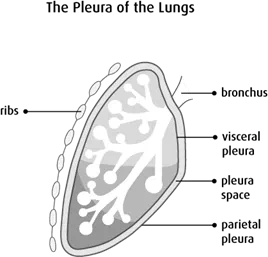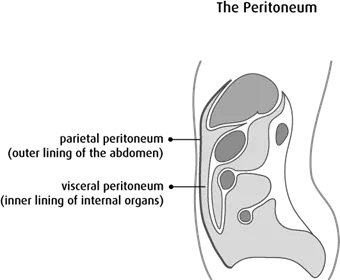What is mesothelioma?
Mesothelioma starts in cells of the mesothelium. A cancerous (malignant) tumour is a group of cancer cells that can grow into and destroy nearby tissue. It can also spread (metastasize) to other parts of the body.
The mesothelium is a membrane that covers and protects most of your internal organs. It is made up of 2 layers. The inner layer wraps around different organs, including the lungs, heart and stomach. The outer layer forms a sac around the inner layer. There is a small amount of fluid between the 2 layers so that the organs can move easily.
The mesothelium has different names, depending on where it is in the body. The mesothelium that protects and cushions the lungs is called the pleura. The inner layer that covers the lungs is called the visceral pleura. The outer layer that lines the inside wall of the chest is called the parietal pleura.

The mesothelium that covers the abdominal organs and lines the walls of the abdomen and pelvis is called the peritoneum. The inner layer is called the visceral peritoneum. It covers and supports most of the internal abdominal organs. The outer layer is called the parietal peritoneum. It lines the walls of the abdomen and pelvis.

The mesothelium is made up of mesothelial cells. These cells sometimes change and no longer grow or behave normally. These changes may lead to non-cancerous (benign) tumours, such as fibrous tumour of the pleura and multicystic mesothelioma. But in some cases, changes to the mesothelial cells can cause malignant mesothelioma.
Mesothelioma is a very rare type of cancer. It usually starts in the pleura, which is called pleural mesothelioma. This type of cancer makes up 70% to 80% of all mesotheliomas. Cancer can also start in the peritoneum, which is called peritoneal mesothelioma. This type of cancer makes up about 25% of all mesotheliomas.
Rarer types of mesothelioma can also develop. This includes pericardial mesothelioma, which starts in the membrane that surrounds the heart. Another rare type is mesothelioma of the tunica vaginalis testis, which starts in the outer lining of the testicle.
